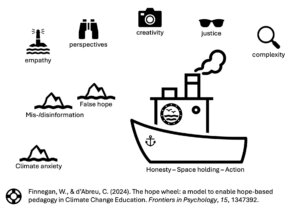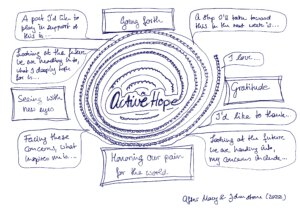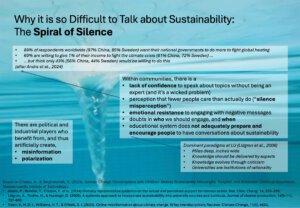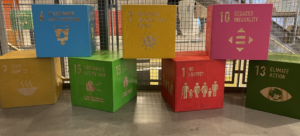
Currently reading Williams & Grain (2025) on “Teaching in a Time of Climate Collapse: From “An Education in Hope” to a Praxis of Critical Hope”
“Sustainability educators face a conundrum in the midst of climate collapse: what if to teach truthfully is to break hearts? What if teaching with the most current and rigorous research…









